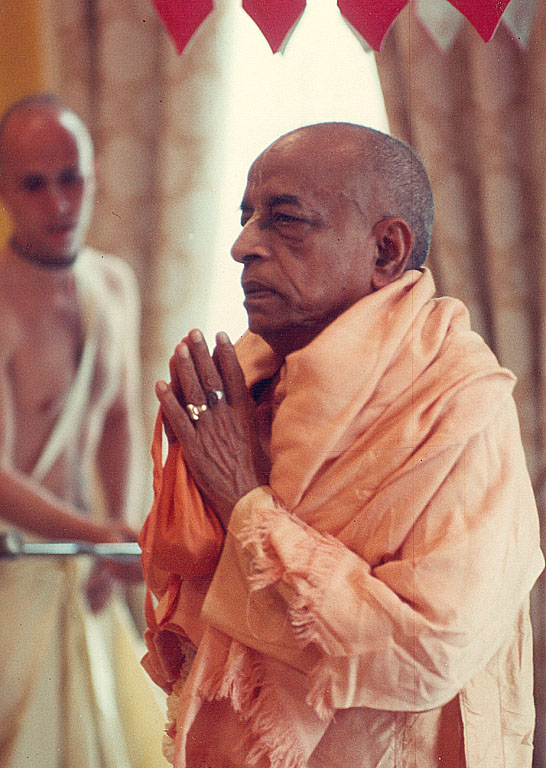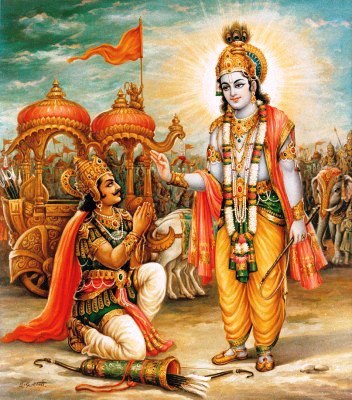
Today we celebrate the Appearance Day of Lord Sri Krishna, otherwise known as Janmastami. We honor it with a full day fast, followed by a feast after midnight, with chanting, reading, and remembering, throughout the course of the day. We started our day by reading the first chapter from The Krsna Book, and we share it with you today.
Kṛṣṇa, the Supreme Personality of Godhead
by His Divine Grace A. C. Bhaktivedanta Swami Prabhupāda
Chapter One
The Advent of Lord Kṛṣṇa
Once the world was overburdened by the unnecessary defense force of different kings, who were actually demons, but were posing themselves as the royal order. At that time, the whole world became perturbed, and the predominating deity of this earth, known as Bhūmi, went to see Lord Brahmā to tell of her calamities due to the demoniac kings. Bhūmi assumed the shape of a cow and presented herself before Lord Brahmā with tears in her eyes. She was bereaved and was weeping just to invoke the lord’s compassion. She related the calamitous position of the earth, and after hearing this, Lord Brahmā became much aggrieved, and he at once started for the ocean of milk, where Lord Viṣṇu resides. Lord Brahmā was accompanied by all the demigods headed by Lord Śiva, and Bhūmi also followed. Arriving on the shore of the milk ocean, Lord Brahmā began to pacify the Lord Viṣṇu who formerly saved the earthly planet by assuming the transcendental form of a boar.
Continue reading







